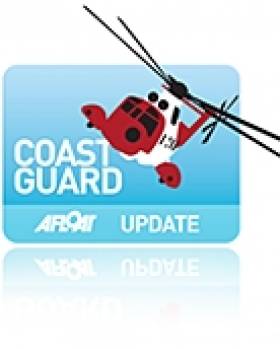Displaying items by tag: Yarmouth
Uk Coastguard Announces Public Meeetings to Discuss Modernising Service
The purpose of the meeting is to provide an opportunity for the local communities around the existing Maritime Rescue Coordination Centres (MRCCs) to hear more about the proposals, ask questions of MCA representatives and have the opportunity to express their views.
Each meeting will be independently chaired and will begin at 7:30pm, expecting to draw to a close by 9pm.
Humber - Monday, 21 February 2011, The Spa, South Marine Drive, Bridlington, East Yorkshire. YO15 3JH
Thames - Tuesday 22 February 2011, Columbine Centre, Princes Esplanade, Walton on the Naze, Essex. CO148PZ
Yarmouth - Wednesday 23 February 2011, Great Yarmouth Town Hall, Hall Plain, Great Yarmouth, Norfolk. NR30 2QF
Aberdeen - Wednesday, 23 February 2011, Pittodrie Stadium, Pittodrie Street, Aberdeen. AB24 5QH
Forth - Thursday, 24 February 2011, Waid Academy, St Andrews Road, Anstruther, Fife. KV10 3 HD
Dover – Thursday, 24 February 2011, Dover Town Hall, Biggin Street, Dover, Kent. CT16 1DL
Shetland - Monday, 28 February 2011, Town Hall, Upper Hillhead, Lerwick, Shetland. ZE1 0HB
Stornoway - Tuesday, 1 March 2011, Nicholson Institute, Springfield Road, Stornoway. HS1 2PZ
Solent - Tuesday 1 March 2011, Thorngate Halls (Community Centre), Thorngate Halls, Bury House, Bury Road, Gosport, Hampshire. PO12 3PX
Holyhead - Wednesday, 2 March 2011, Holyhead High School, Alderley Terrace, Holyhead, Gwynedd, Isle of Anglesey. LL65 1NP
Clyde - Wednesday 2 March 2011, Port Glasgow Town Hall, 35 King Street, Port Glasgow. PA14 5HD
Belfast - Thursday, 3 March 2010, Marine Court Hotel, 18-20 Quay Street, Bangor. BT20 5ED
Liverpool – Thursday, 3 March 2011, Southport Convention Centre, The Promenade, Southport. PR9 0DZ
Milford Haven – Friday, 4 March 2011, Cleddau Bridge Hotel, Essex Road, Pembroke Dock. SA72 6EG
Swansea – Monday, 7 March 2011, Marriott Hotel, Maritime Quarter, Swansea. SA1 3SS
Portland - Tuesday, 8 March 2011, All Saints Church of England School, Sunnyside Road, Wyke Regis, Weymouth. Dorset, DT49BJ
Falmouth – Wednesday 9 March 2011, Tremough Campus, Treliever Road, Penryn, Cornwall. TR10 9EZ
Brixham - Thursday, 10 March 2011, Brixham College, Higher Ranscombe Road, Brixham. TQ5 9HF
Kirkwall - Tuesday, 15 March 2011, Town Hall, Broad Street, Kirkwall. KW15 1DH
Ullapool – Wednesday, 16 March 2011, Macphail Centre, Mill Street, Ullapool, Ross-shire. IV26 2UN
The details of these proposals, together with the consultation documents, can be found on the MCA website at www.mcga.gov.uk.





























































